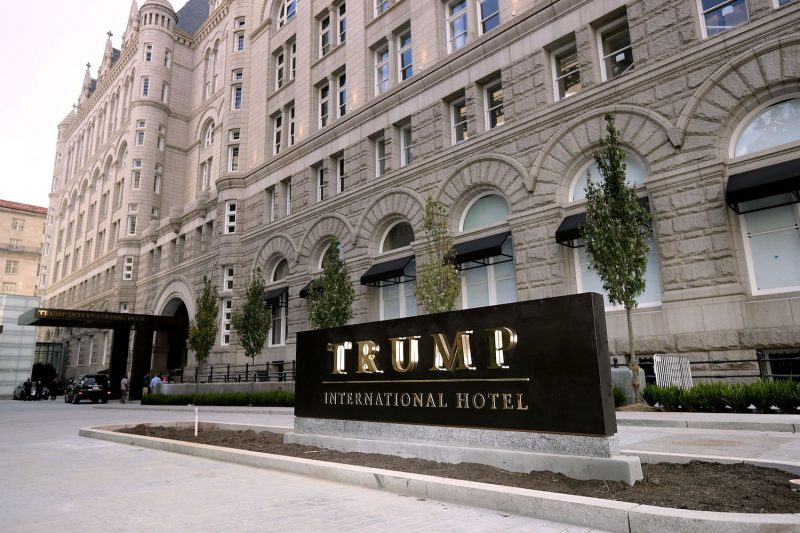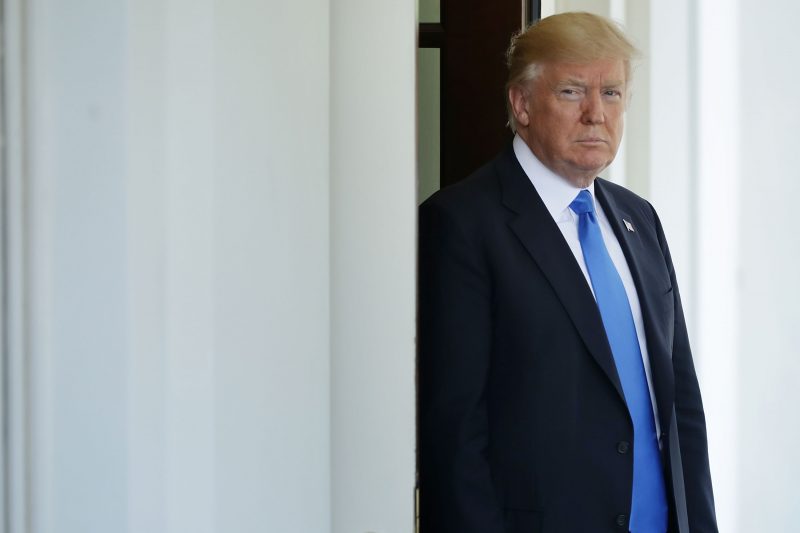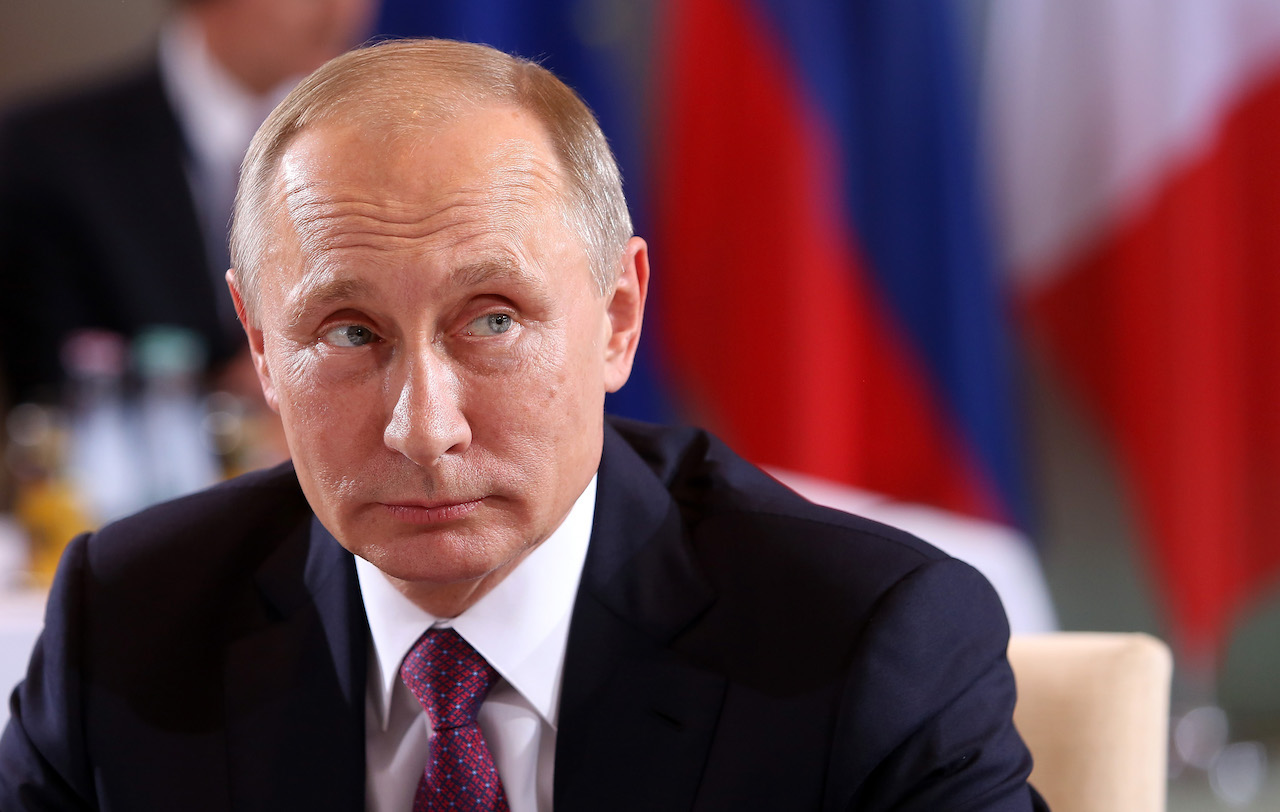- A New York Times investigation found that Russia renewed 6 Trump trademarks in 2016 The trademarks were approved for renewal while Russia was actively meddling in the US election Trump has repeatedly said he has no more business dealings with Russia, but intellectual property law experts told The Times that unused trademarks can hold significant value The report comes as the Trump campaign is under multiple active investigations for possible collusion with Russia during the 2016 election
Last year, the Russian government approved the renewals of six trademarks for President Donald Trump that were about to expire, according to a New York Times investigation on Sunday.
Four of those renewals were officially registered by Russia on Election Day.
The Times found that the Kremlin approved applications for the trademarks’ renewal beginning in April 2016 and ending in December of that year, according to records maintained by Rospatent, Russia’s government agency which oversees intellectual property.
The trademarks were originally obtained between 1996 and 2007, but they had gone unused. Each of the trademarks was granted a 10-year extension in 2016, the investigation found.
Trump has repeatedly said that he has no remaining business deals in or involving Russia.
"Why is that Hillary Clintons family and Dems dealings with Russia are not looked at, but my non-dealings are?" the president tweeted last week.
"I don't know Putin, have no deals in Russia, and the haters are going crazy - yet Obama can make a deal with Iran, #1 in terror, no problem!" he tweeted in February.
In January, he tweeted, "Russia has never tried to use leverage over me. I HAVE NOTHING TO DO WITH RUSSIA - NO DEALS, NO LOANS, NO NOTHING!"
Although business deals the trademarks were originally issued for were never carried through, intellectual property experts say trademarks themselves can wield significant value.
"Trademarks have inherent value, per se, as they allow you to stop others from using the mark either by stopping competing registrations or stopping infringing uses," Annsley Merelle Ward, an expert in intellectual property law at Bristows law firm, told the Times.

One of Trump's 'most valuable assets'
When reached for comment about the trademarks' renewal, Trump Organization chief legal counsel Alan Garten seemed to confirm Ward's statement. The renewals had been requested, Garten told the Times, "to prevent third parties from infringing on the company's intellectual property rights."
He also said that the company has no plans to use the trademarks in the future and that it will not pursue new business dealings in Russia.
Garten is aware of the value trademarks carry, however. In a 2015 deposition over a separate dispute, Garten testified that Trump's trademarks were "one of his most valuable assets."
"We take the protection and enforcement of my client's brand extremely seriously," Garten said during the deposition. "We invest a lot of money in its efforts. It is his brand."
The Times noted that nothing in the records maintained by Rospatent indicates Trump was shown particular favor when trademarks bearing his name were approved for renewal. However, intellectual property law experts said that renewals are not guaranteed and can be difficult to obtain when trademarks have gone unused for a long period of time, like Trump's were.
While it was renewing Trump's trademarks in 2016, the Russian government was also engaged in an active hacking campaign to undermine the election. The US intelligence community concluded with high confidence that Russian operatives specifically targeted the Democratic National Committee and the Hillary Clinton campaign in an effort to subvert Clinton's candidacy and propel then-candidate Trump to victory. Intelligence agencies also confirmed that Russian hackers designed an elaborate online fake news and disinformation campaign focused on disseminating false information about Clinton in order to swing votes toward Trump.

And earlier this month, The Intercept published a leaked National Security Agency document which determined hackers connected to Russian military intelligence tried to breach US voting systems days before the 2016 election. National security experts told Business Insider the document was the clearest indication yet of a Russian cyberattack on the US electoral system.
In addition to investigating Russia's role in meddling in the 2016 election, Congress and the FBI are also looking into any potential collusion between Trump associates and the Kremlin to hand Trump the presidency.
The Russia probes picked up steam after Trump abruptly fired former FBI director James Comey - who was spearheading the FBI's investigation into the Trump campaign's ties to Russia - in early May. A slew of media reports published after the fact raised questions about Trump's motivations in firing Comey, and legal experts touched on the possibility that Trump may have waded into impeachment territory if he removed Comey specifically because of the Russia investigation.
Last week, The Washington Post reported that FBI special counsel Robert Mueller is investigating Trump for obstruction of justice. In an apparent response to the report, Trump tweeted on Friday, "I am being investigated for firing the FBI Director by the man who told me to fire the FBI Director! Witch Hunt."
However, Trump's legal team heavily pushed back on the Post's report on Sunday. In an interview on "Meet The Press," Trump's lawyer, Jay Sekulow, repeatedly denied that Trump was a subject in Mueller's probe, even after host Chuck Todd pointed out that Trump himself seemed to confirm that he was a target of the investigation in his tweet.
"Then why did he say he was [under investigation]?" Todd asked. "I mean, was this just mis-tweeted? Are we not to take him at his word?"
Sekulow insisted that Todd was "reading more to the tweet than what's there."
Read the New York Times report here »

